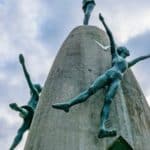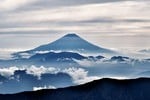When it comes to the Mausoleum of Khoja Ahmed Yasawi, most people notice the blue, brilliant blue. But this UNESCO World Heritage Site has a savvier story to tell. Travel to the city of Turkistan and learn more about survival in Kazakhstan.
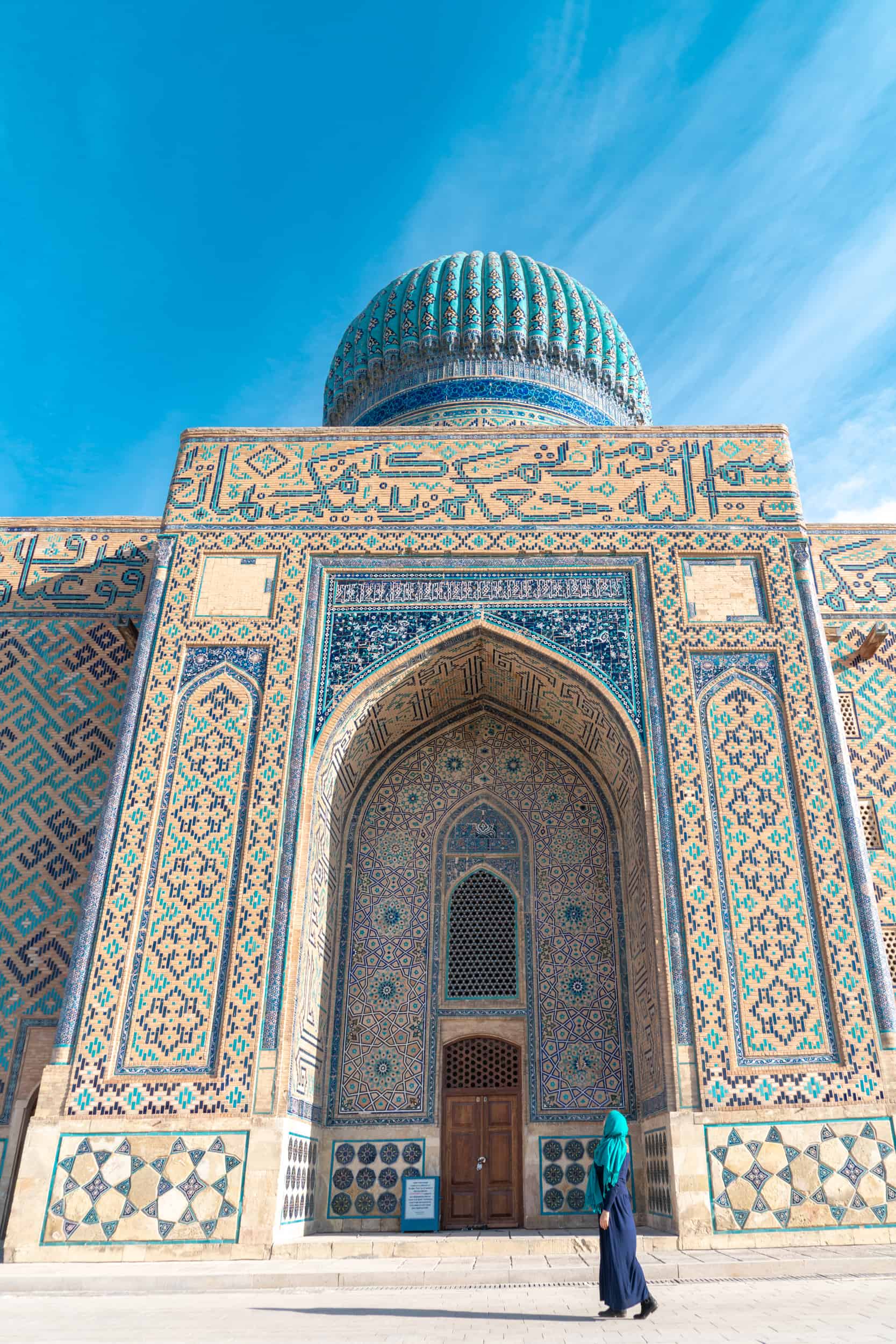
Introducing the Mausoleum of Khoja Ahmed Yasawi
If blue could dream and find a place on earth where it could live forever, I think it might be here. Locked into the azul tiles, blue could bask between the shine of the sun and the stars, punctured only by the shadows of the birds that flit past overhead.
Here is the Mausoleum of Khoja Ahmed Yasawi, a bleak sounding name but a brilliant looking place. It lives in the dusty steppe near Turkistan, a city to the southern side of Kazakhstan. As you might expect, once you’ve seen it, it is also a UNESCO World Heritage Site.
But the story behind the Mausoleum runs deeper than face value. It is a story of reinvention, diplomacy, power and survival.
Are you ready to hear it?
Let’s go inside.
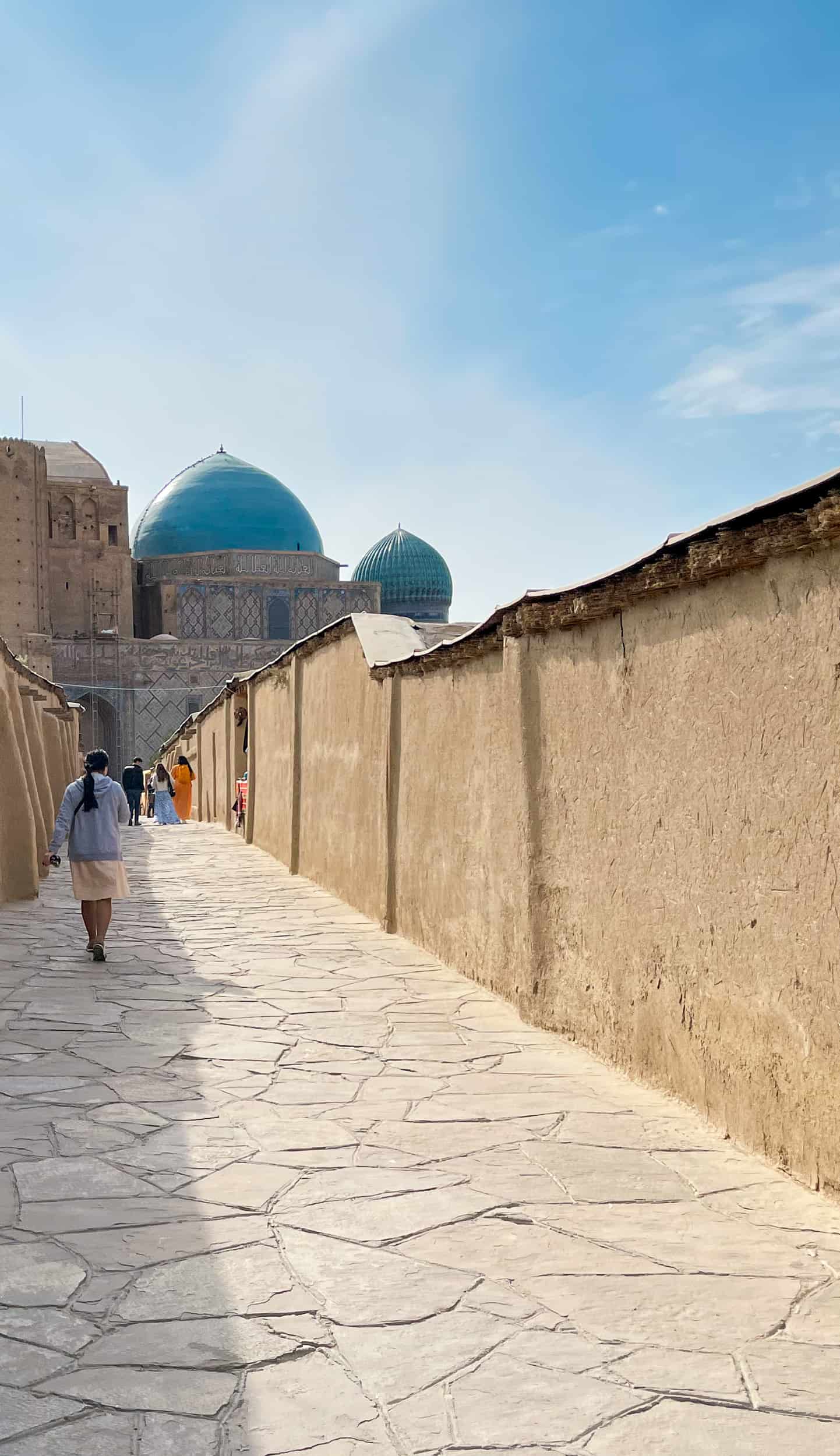
The Surroundings
The walkway towards the Mausoleum of Khoja Ahmed Yasawi feels biblical in scope and scape. Dry dust, empty plains. With some model camels setting still silhouettes against the sky. There are few tourists, but then again, we are still within the shadow of the pandemic.
A narrow sandy streets leads past sleepy vendors to the entrance, a huge, and I mean huge, sand coloured arch that runs up to kiss the sky.
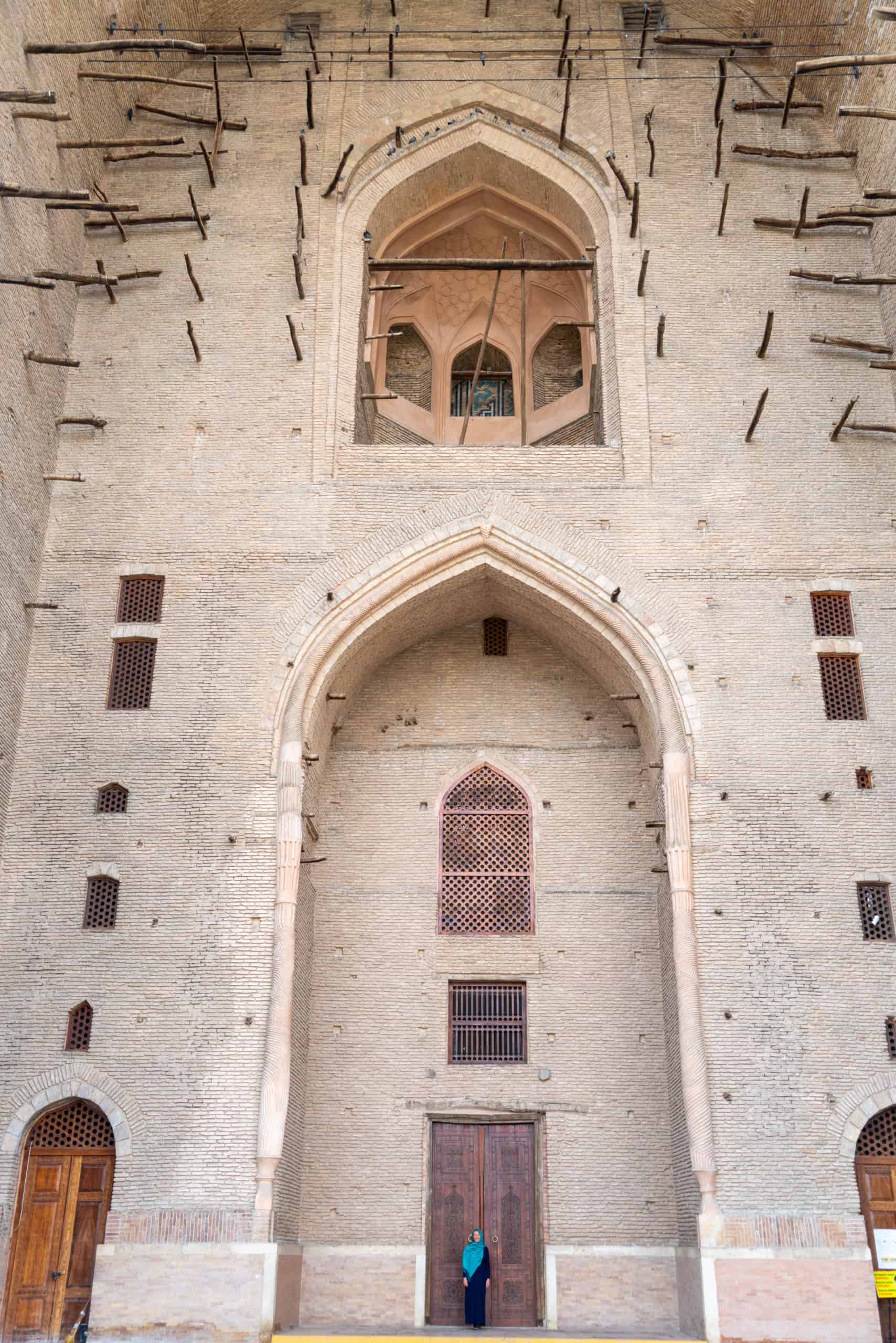
So Who Was Khoja Ahmed Yasawi?
Khoja Ahmed Yasawi himself was a poet and Islamic leader born centuries ago. He died in the 12th century but it took a further 200 years before his death, and life, was honoured through this Mausoleum.
When the mighty Central Asian conqueror, Timur, strode into town, Khoja Ahmed Yasawi’s tomb already attracted the faithful. But Timur had a problem and saw a solution.
The problem was that Islam was gaining ground in the region – and with it fears of allegiance to Iran and the Arabian peninsula through the spread of the language and power structure that arrived with the religion.
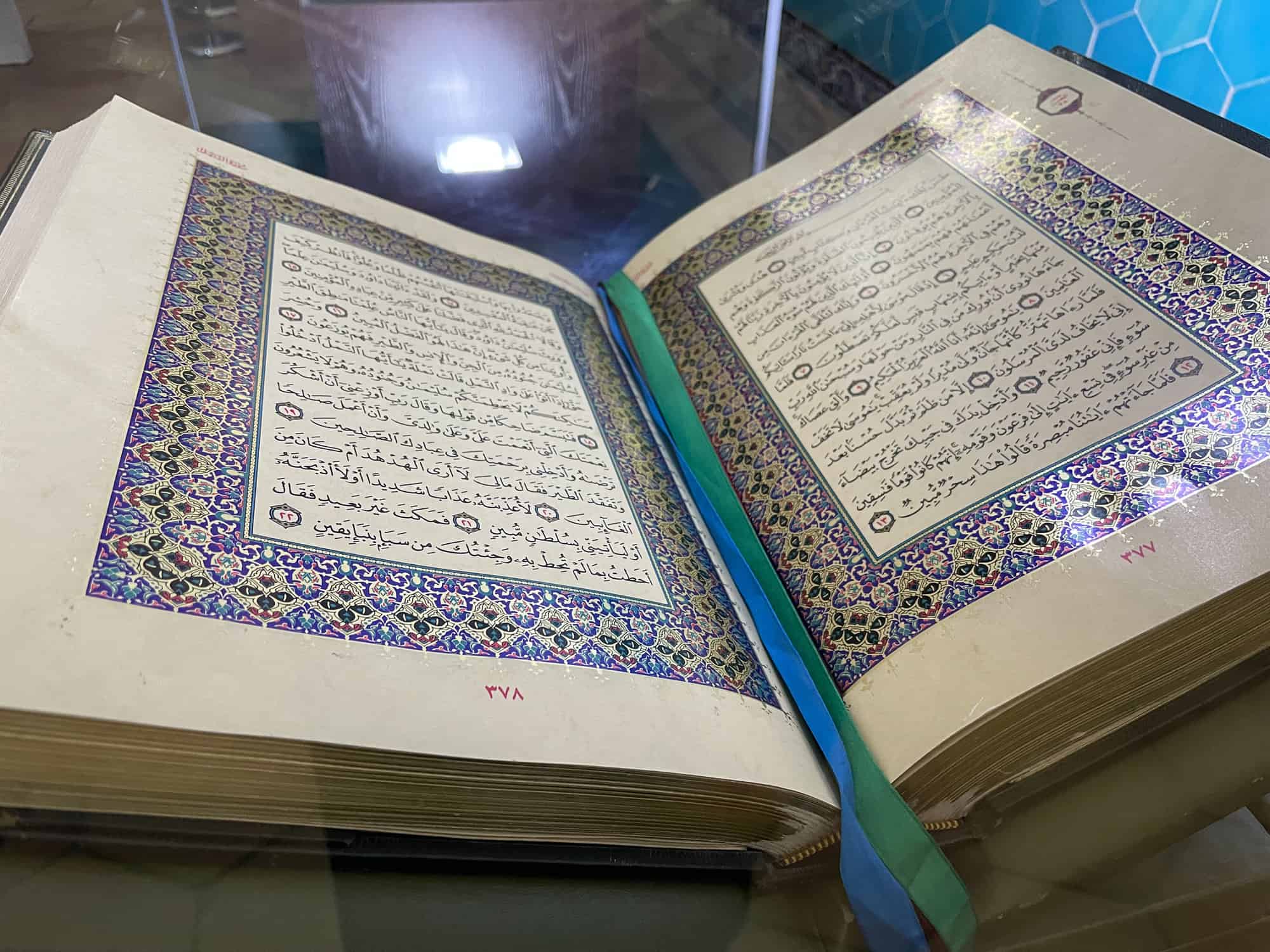
So, Timur blended the core of Islam with local folklore and tradition as a way of maintaining his own influence and power. He commissioned this epic piece of architecture to replace the smaller 12th century mausoleum and infused local motifs into the design.
Construction began, using master builders and glazed tiles, Kazakh national identity and cultural heritage, and a masterpiece of the Timurid period was born.
Another landmark in the history of the Islamic World was complete.
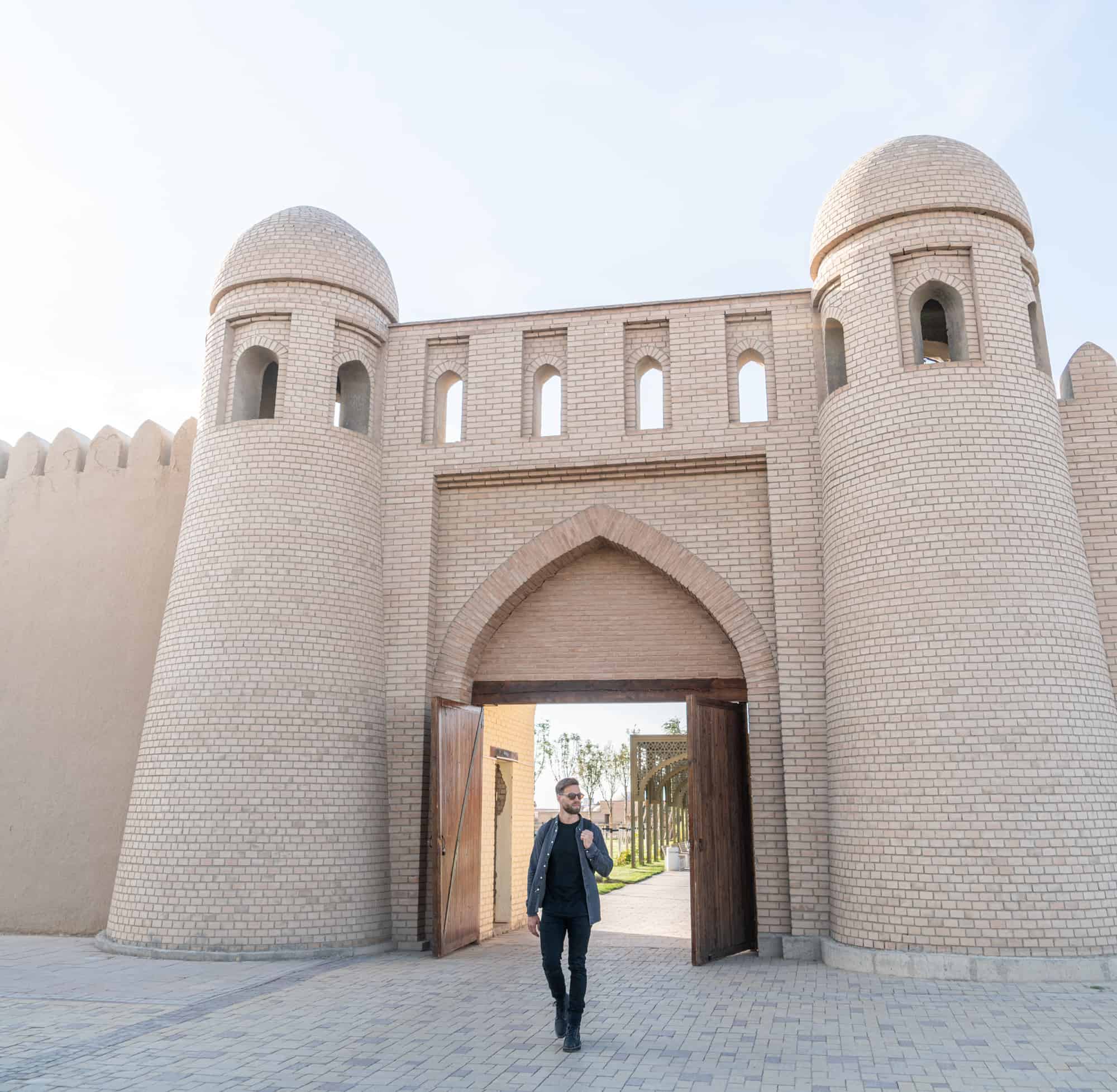
Who Was Timur?
Although not a direct descendant of the famous Genghis Khan, Timur was the last in the line of successful Turco-Mongol conquerors from the Central Asian steppe.
At his peak, Timur defeated the Islamic empires of Egypt, Syria Turkey and Delhi.
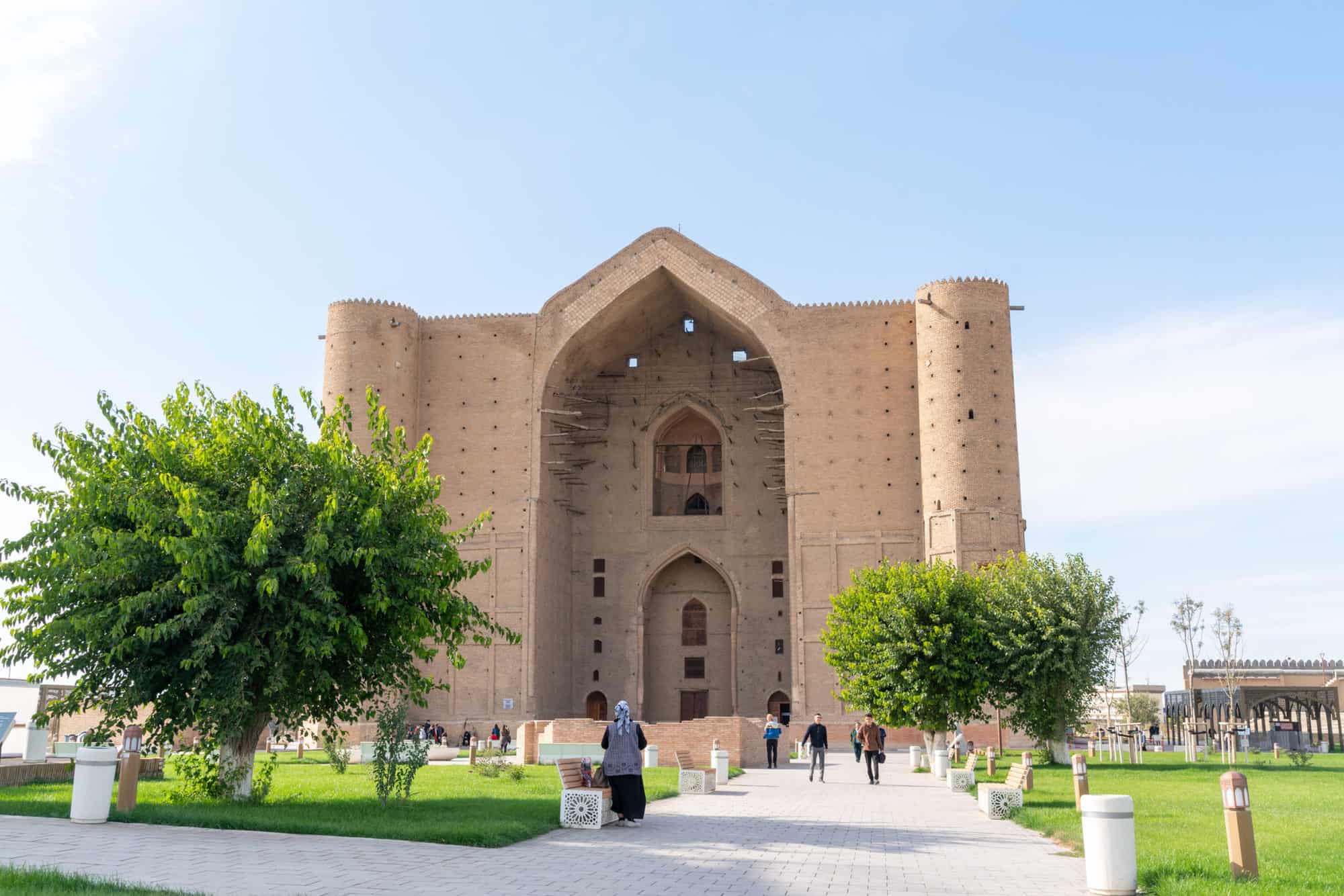
Kickstarting a New Trend in Architecture
Commissioned in 1389, the Mausoleum of Khoja Ahmed Yasawi was one of the earliest types of Timurid or Tamerlane architecture in existence. If you’re not sure what that is, you’ll recognise it from photos of the beautiful blue buildings of Samarkand in Uzbekistan.
Or, even better well known, the Taj Mahal.
One of Timur’s descendants, Babur, founded the Mughal Empire in India, developing the architectural aesthetic further. The beauty of the Taj Mahal may be known all across the world but it all started here in southern Kazakhstan.
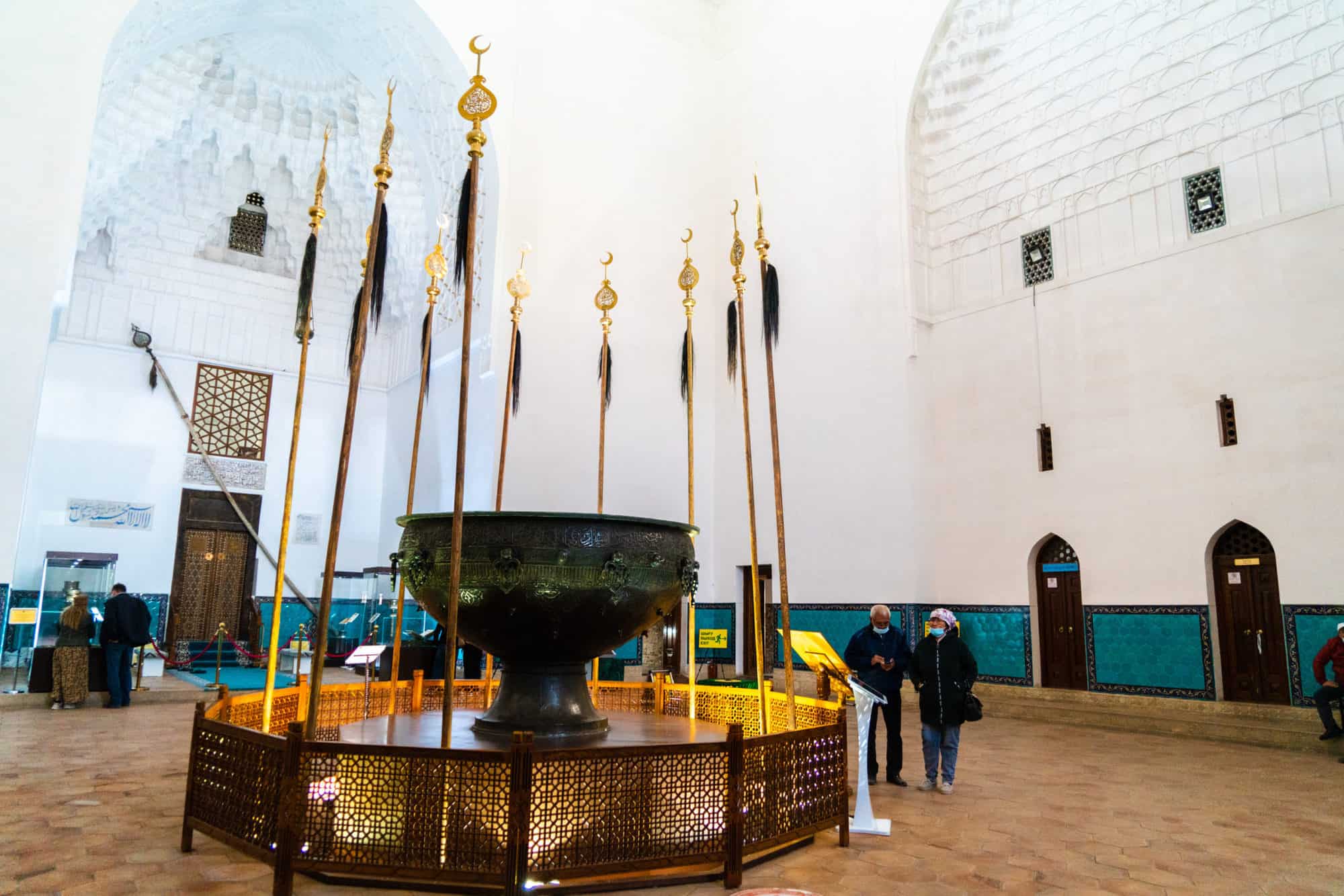
Inside the Khoja Ahmed Yasawi Mausoleum
After such a grand exterior, the inside feels curiously off kilter, a mix between a museum, place of worship and a local community centre. All told, the Khoja Ahmed Yasawi Mausoleum complex includes 35 rooms, including a place for blessing newborns, a library full of ancient books, a bathroom and the Hilvet Underground Mosque.
But that was always part of the plan. Timur didn’t just want the religious aspect, he wanted to educate and bind communities together to this new way of thinking.
The most obvious symbol of this, quite literally, is the vast tayqazan, a cauldron that sits in the centre of the room and which draws pilgrims from miles around.
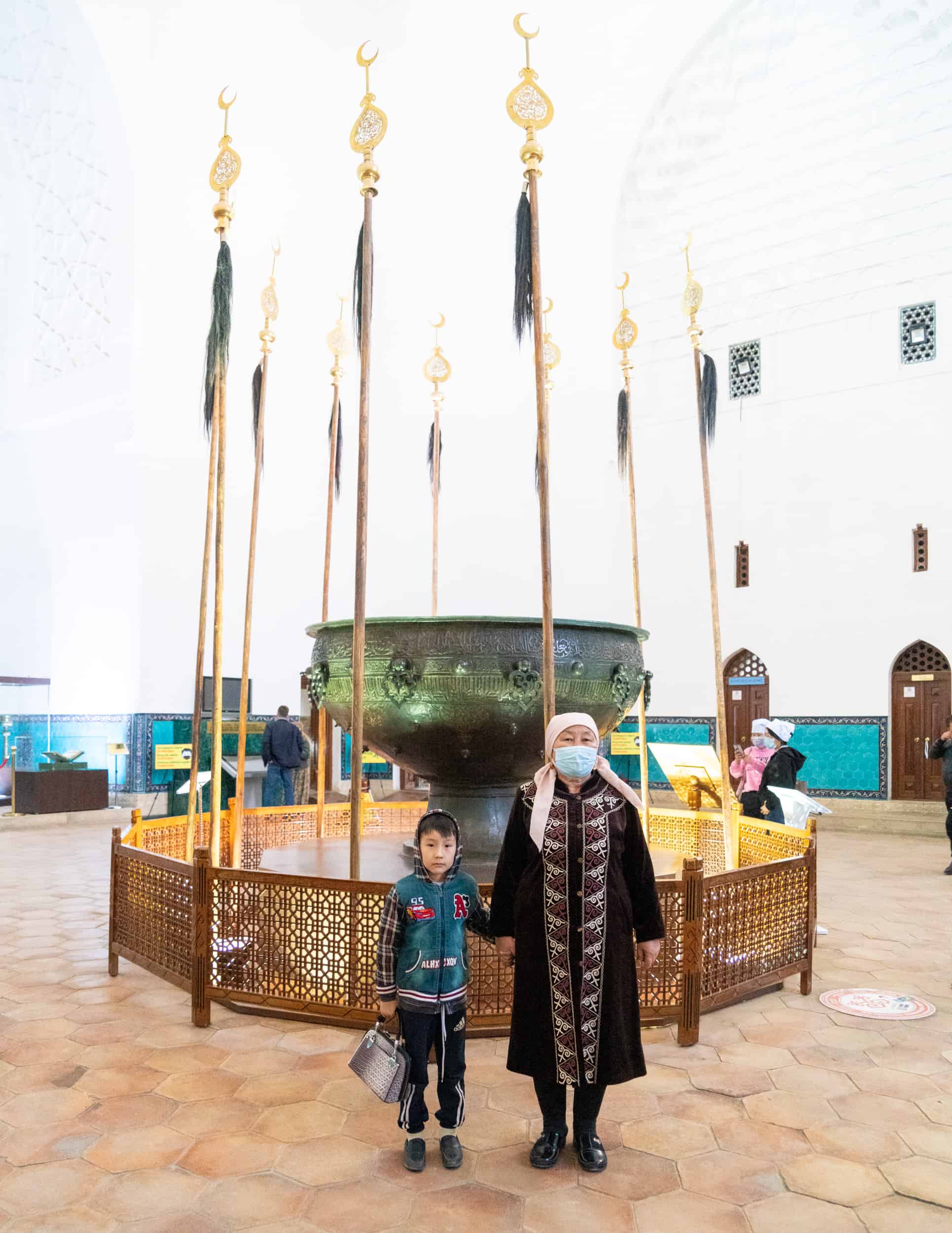
The Tayqazan
The central tayqazan or tay qazan can hold 3000 litres of rosewater for pilgrims during services. Its diameter is 243.4 cm across and it weighs two tonnes. The inscriptions include passages from the koran along with traditional Kazakh decorative motifs.
Fast Facts About the Khoja Ahmed Yasawi Mausoleum
- It’s known as “little Mecca” because it attracts so many pilgrims
- It’s the only example of Timurid architecture in Kazakhstan
- It’s one of the oldest and best preserved structures of its kind
- It sits 300 kilometres north of Tashkent
- The Mausoleum has the largest brick dome in Central Asia.
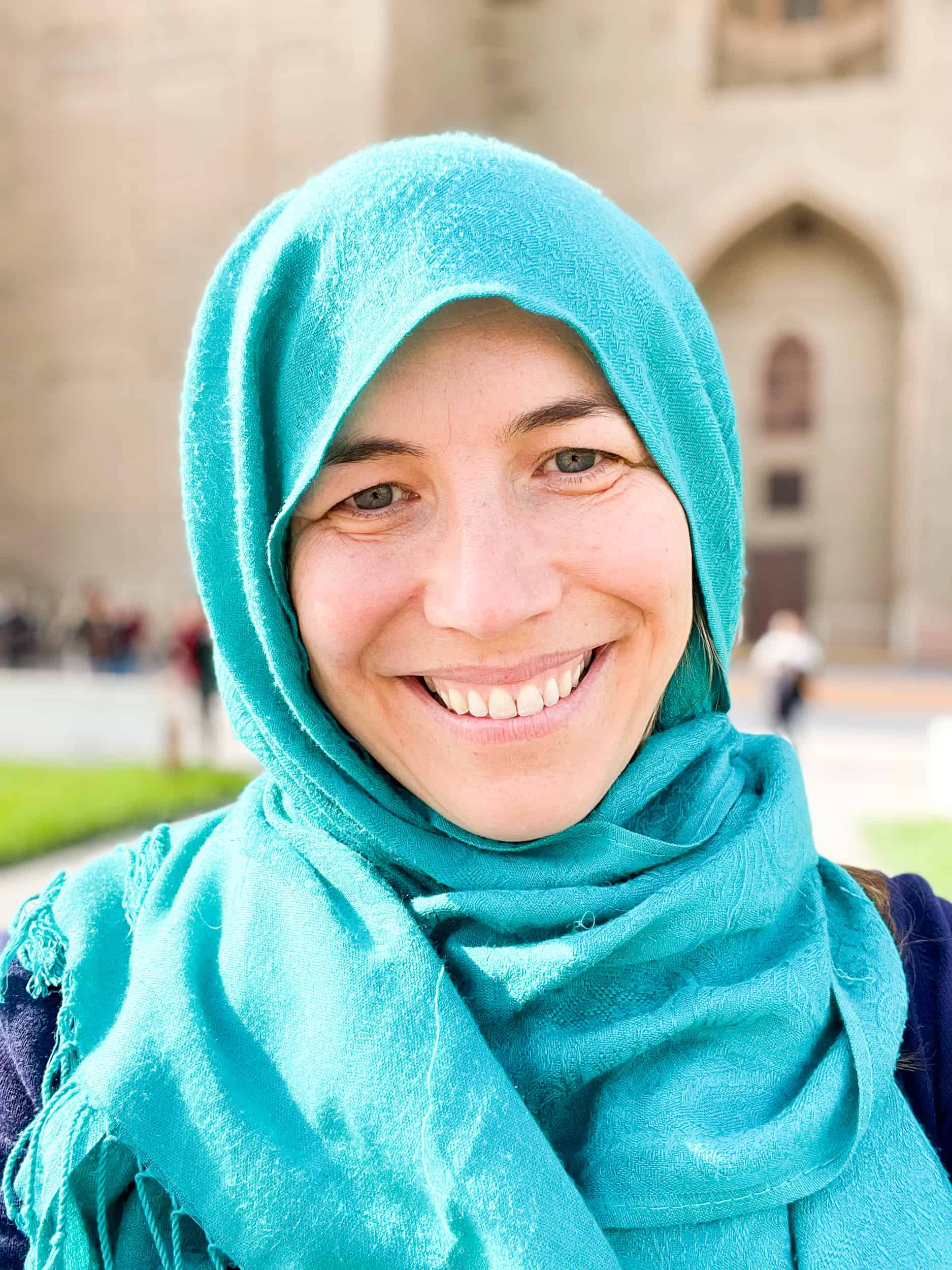
Practical Tips for Visiting the Khoja Ahmed Yasawi Mausoleum
What To Wear
The city of Turkistan is one of the more conservative areas in Kazakhstan and the Mausoleum is considered by many to be a holy Islamic place.
What this means for women is that they must cover their hair. Both men and women should long sleeves and trousers to cover down to your wrists and ankles. You will also need to remove your shoes on entry, so wear socks and be ready for this.
Photography
Photograph is permitted inside the Mausoleum but it is not a good idea to take photographs of people unless you have permission.
Guides and Tours
You will get a whole load more out of your visit with a guide. The common language across Kazakhstan is Russian, so unless you speak Russian or Kazakh then book an English speaking guide.
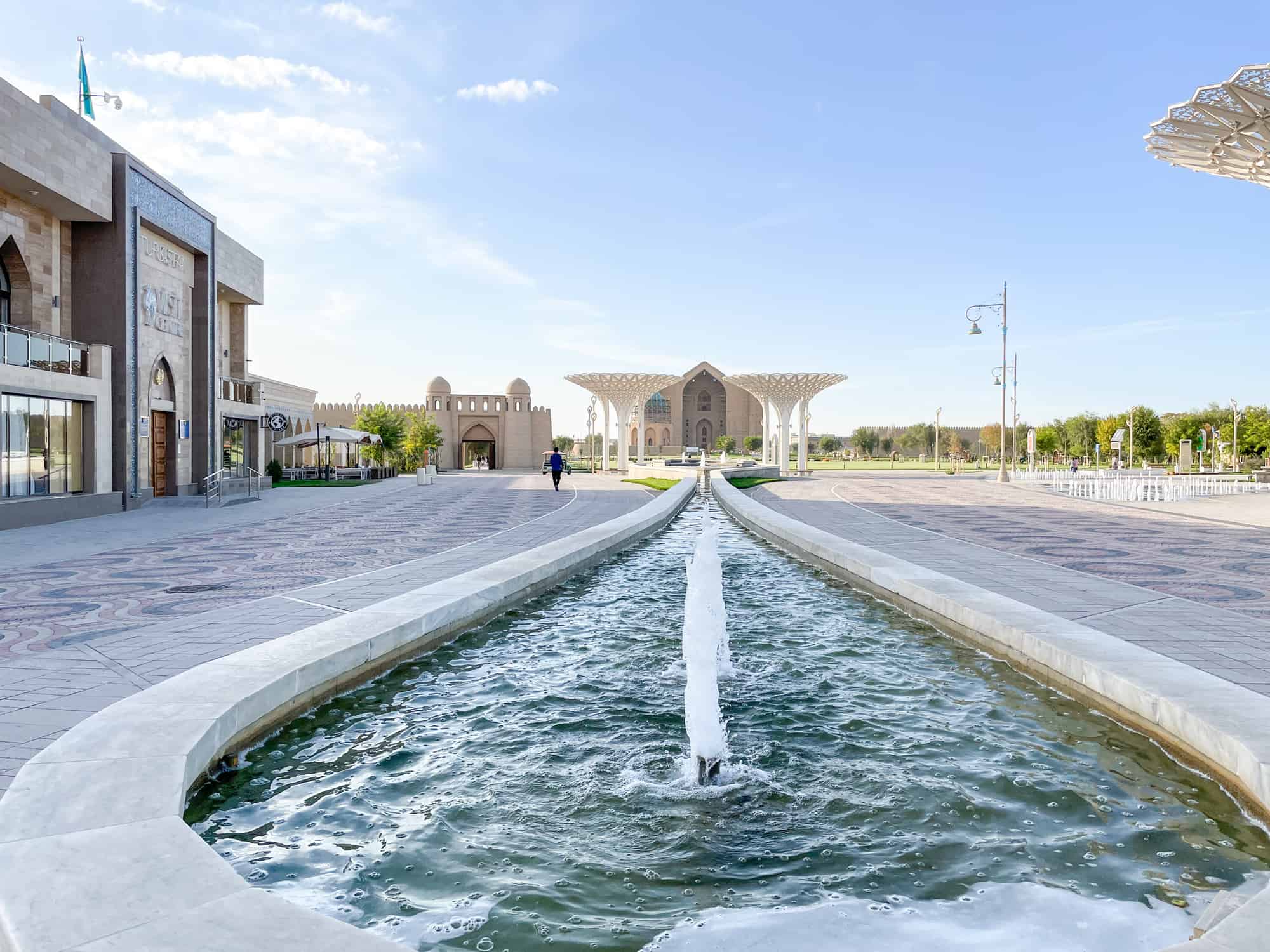
Spend Some Time in Turkistan
It’s worth spending some time in and around Turkistan as it provides such a contrast with the bigger city of Almaty.
Turkistan has undergone a massive transformation in the last few years and it hasn’t stopped yet. Great things to do in Turkistan include:
- Wandering around the new downtown area with fountains and sculptures
- Pay a visit to Turkistan’s Visitor Centre to get more background information on the area
- Take a day trip to the ruins of Otrar, once a main city on the Silk Road which was besieged and destroyed by Genghis Khan
- Go dancing with in between dinner courses at Zoloto
- Relax and enjoy a spa treatment at the Five Star Rixos Hotel
- Try a mix of modern and traditional food at Edem Restaurant
- Catch the free nightly light show on the water at the Karavansaray
Getting There
You can fly direct from Istanbul or take a domestic flight from Almaty in Kazakhstan. The Mausoleum is right near the centre of the city so is easy to travel to if you are staying in Turkistan. We stayed at the Rixos Hotel, which is very close by.
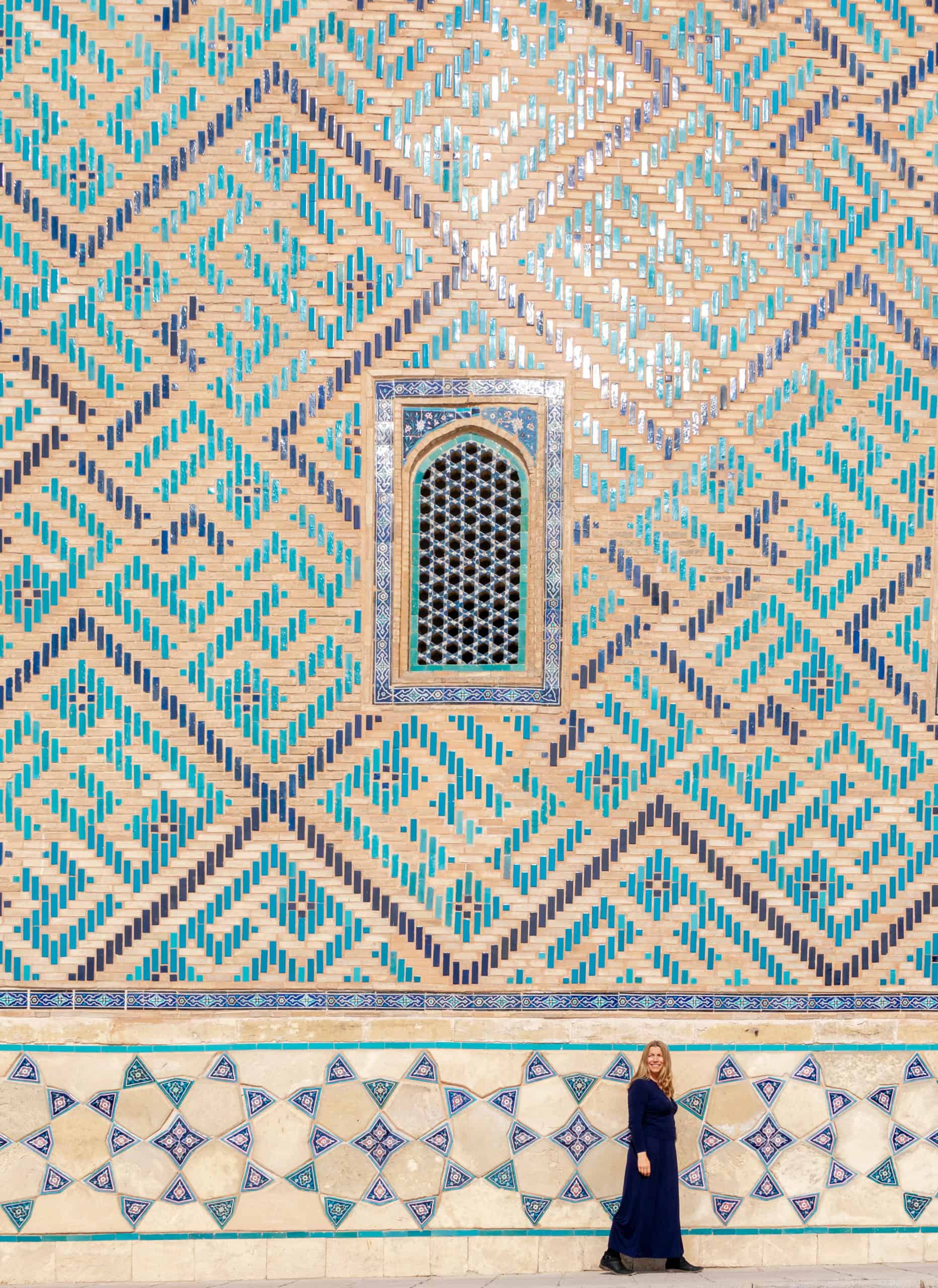
More About Travel in Kazakhstan
- Kazakhstan food guide: the 15 dishes you should try
- 17 Interesting facts about Kazakhstan
- Beshbarmak: the national dish of Kazakhstan
Disclosure: I visited Kazakhstan as a guest of the Foundation of Nursultan Nazarbayev, established y Nursultan Nazarbayev, the First President of Kazakhstan. As ever, I kept the right to write what I like! Otherwise, what’s the point?
So what does this foundation do? They are focused on:
- supporting the development of an inclusive society
- developing a competitive think tank
- expanding international cooperation
- preserving the cultural code of the nation

